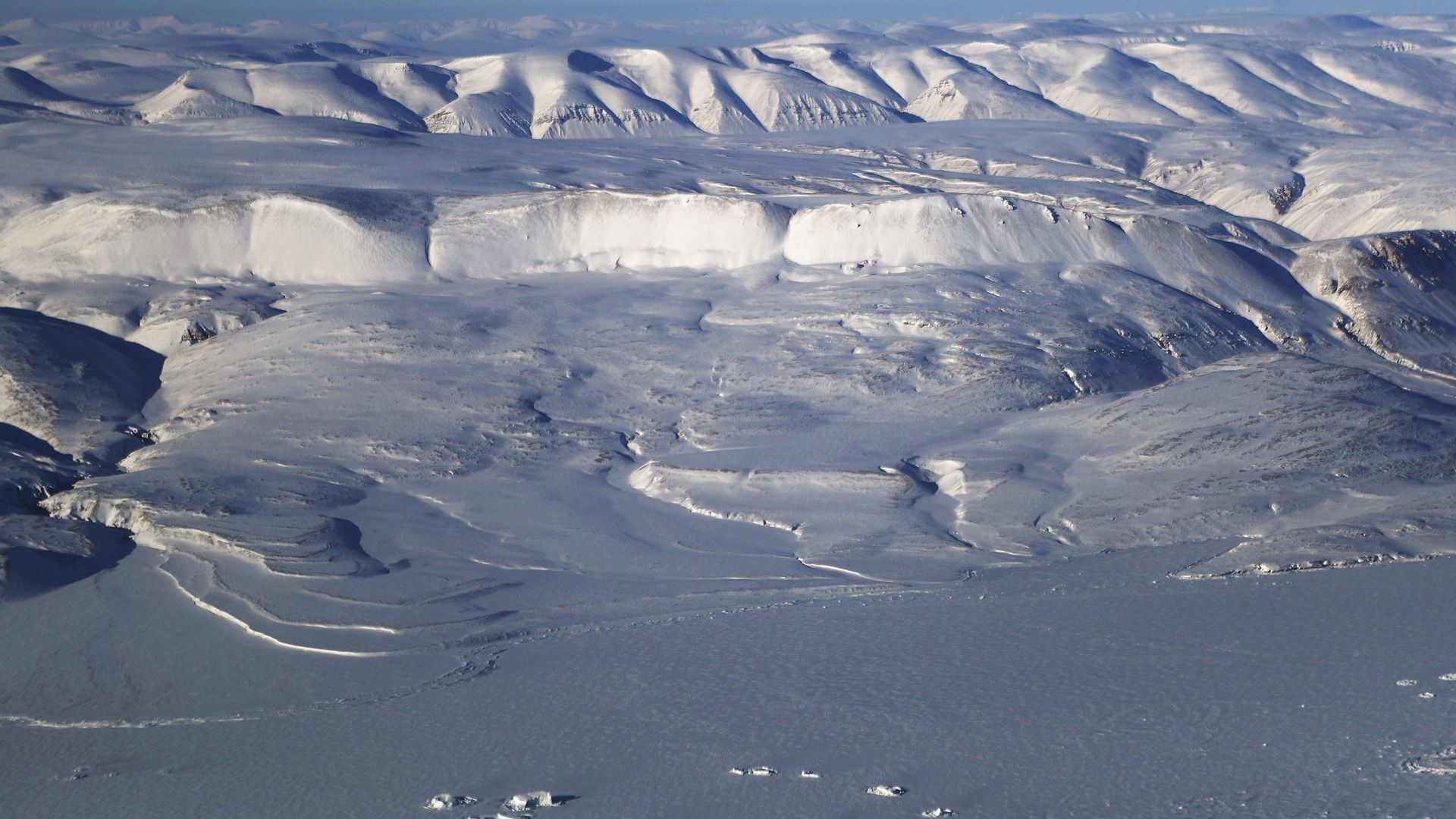Aug 7, 2020 - Energy & Climate
Global warming breaks Canada's last intact ice shelf
Add Axios as your preferred source to
see more of our stories on Google.

A view above Ellesmere Island, Canada, in 2017.
Add Axios as your preferred source to
see more of our stories on Google.

A view above Ellesmere Island, Canada, in 2017.